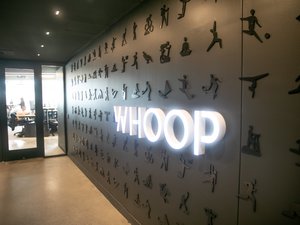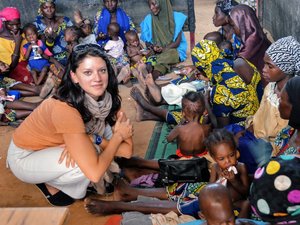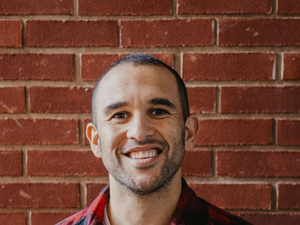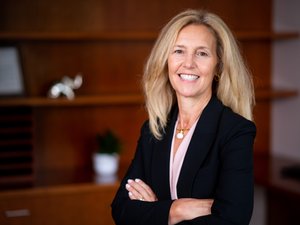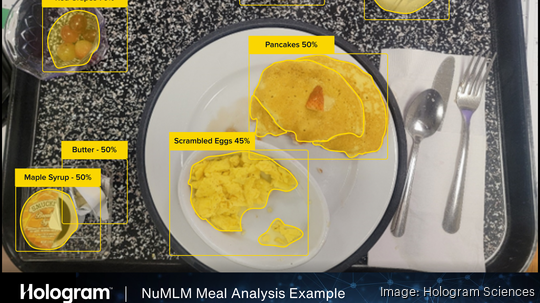
Hologram Sciences is using artificial intelligence to combat malnutrition in hospitals.
The Boston-based company is developing an AI model for initial clinical use at the Mayo Clinic in Minnesota. The model would enable hospitals to monitor patient nutrition across all levels of care and help improve hospitalization outcomes, according to the company.
Traditionally, tracking food and nutrient consumption has been an offline process that relies on nurses to estimate nutrient consumption just by looking at a meal, said Ian Brady, Hologram Sciences CEO. Nurses typically estimate the overall percentage of the meal consumed, rather than individual items, he said. The AI can estimate the amount of each item eaten, such as if a patient ate 75% of their pancakes, but only 10% of their eggs, giving a more accurate picture of the amount of protein and other nutrients consumed.
The tech relies on nurses taking a photo of the food pre- and post-consumption on a phone connected to an app, which would feed the image to the model that calculates consumption. The model, called NuMLM, has a database of photos of hospital meals, and can estimate the portion of individual items that were or were not consumed.
The app works similarly to a mobile check deposit, Brady said, by giving nurses specifications for how the photo should be taken. If the picture is taken correctly, the model can compare the images to hundreds of thousands in an open-source database Hologram can access, to estimate the nutritional elements consumed.
- Sign up for The Beat, BostInno’s free daily innovation newsletter. See past examples here.
In most hospitals, nutrient tracking is done only in intensive care units, said Brady. It’s a staffing issue, he said, because there isn't the capacity to have a nurse who can see every patient eat every meal.
“Nurses can't do that for all patients. It's also hard to do if you're not a dietician,” he said.
The technology uses registered dietitians in a co-pilot role, he said. The images in the database have been assessed by RDs, and the model is trained using those assessments to estimate components of new uploaded images.
Risks associated with malnutrition in patients include worse surgical outcomes, longer hospital stays, and readmissions, according to Brady.
The technology has the ability to be individualized, based on the nutritional needs individual patients may have, and clinical protocols for specific diagnoses. It could also be used to predict which patients may be at risk for malnutrition, Brady said.
“It can act as a screening tool. It's not just tracking what they're eating, but it can screen for malnutrition,” he said.
Currently, there isn’t a defined timeline for when the technology will be used in clinical settings at Mayo Clinic or beyond, according to Brady. Some training is needed to onboard nurses and ensure it is working at the highest level of accuracy.
Hologram Sciences has approximately 30 employees, about 10 of whom are Boston-based, including Brady.
What are your company’s hiring plans? Answer our 1-minute poll here.
